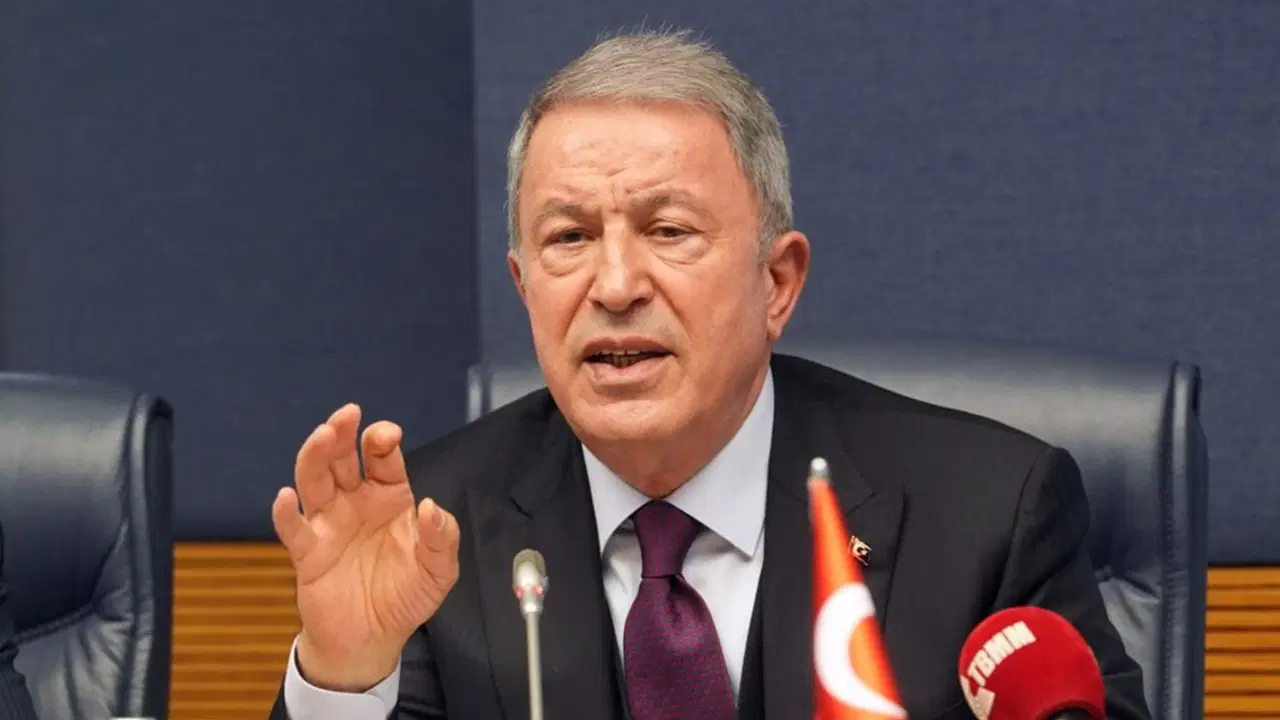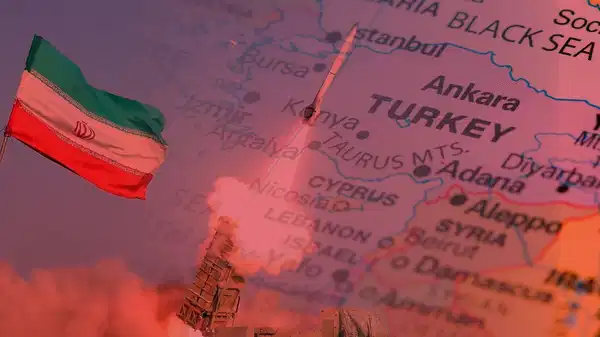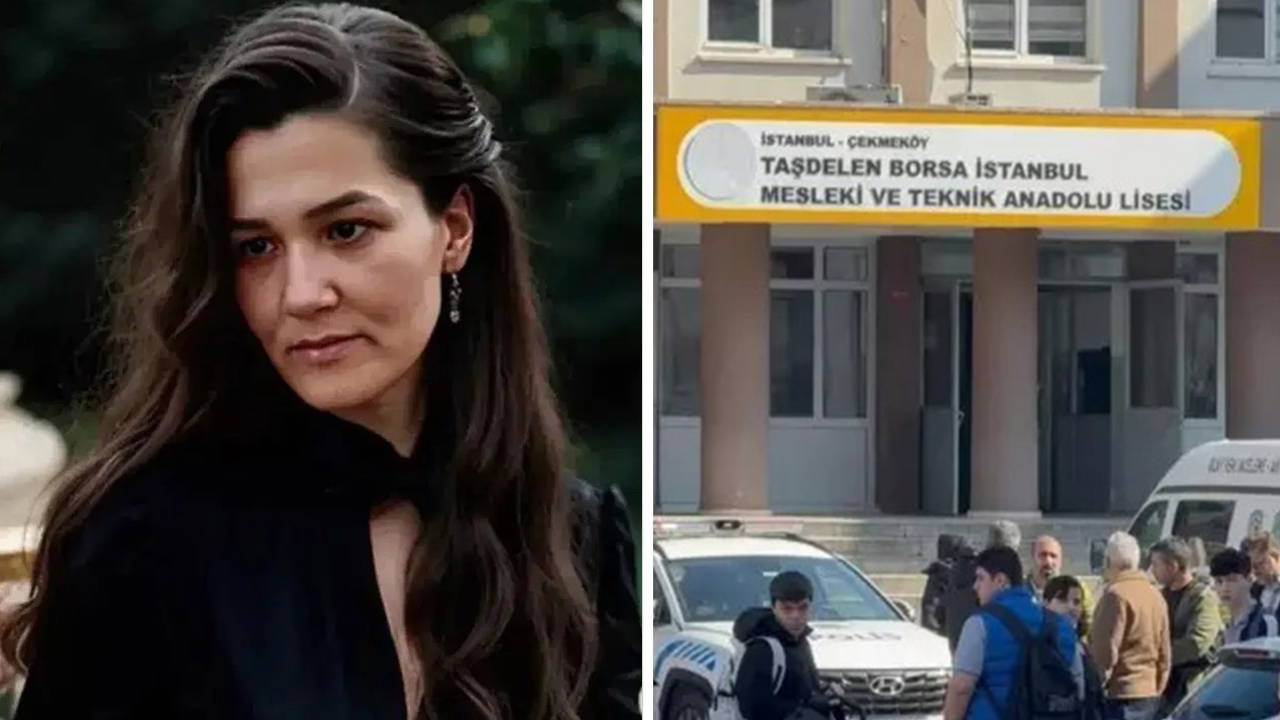 Eleventh President Abdullah Gül’s former press advisor, Ahmet Sever, says in the book he has authored that President Recep Tayyip Erdoğan gave the instruction, “Imprison him” with reference to himself. Sever writes that the source on which he bases this allegation whom he says is currently in an influential position said, “As far as I know, you are the only one to escape imprisonment despite Erdoğan ordering their imprisonment.” Sever served as Gül’s chief press advisor in the years 2003-2014. “12 Years with Abdullah Gul” which he wrote after leaving the post created huge waves. In the book “Political Secrets Behind Closed Doors – Getting it off my Chest - My Testimony” that was brought onto the market by Destek Publications, he makes reference to his experiences following the first book. Sever, noting that legal proceedings were brought against him at jet speed under a complaint by Erdoğan’s advisor Mustafa Varank in respect of the interview published in Cumhuriyet newspaper about the book, continues, “I actually later found out what the source of the speed was. An acquaintance in whom I have great trust and who has good relations with Erdoğan’s close entourage passed on this information. President Erdoğan seemingly became very angry when they showed him the Cumhuriyet newspaper in which my interview made it into the headlines and gave the following instruction: ‘Is this one still talking, then? Shut him up!’ Yes, Varank was nothing more than an intermediary in me being shut up.”
Eleventh President Abdullah Gül’s former press advisor, Ahmet Sever, says in the book he has authored that President Recep Tayyip Erdoğan gave the instruction, “Imprison him” with reference to himself. Sever writes that the source on which he bases this allegation whom he says is currently in an influential position said, “As far as I know, you are the only one to escape imprisonment despite Erdoğan ordering their imprisonment.” Sever served as Gül’s chief press advisor in the years 2003-2014. “12 Years with Abdullah Gul” which he wrote after leaving the post created huge waves. In the book “Political Secrets Behind Closed Doors – Getting it off my Chest - My Testimony” that was brought onto the market by Destek Publications, he makes reference to his experiences following the first book. Sever, noting that legal proceedings were brought against him at jet speed under a complaint by Erdoğan’s advisor Mustafa Varank in respect of the interview published in Cumhuriyet newspaper about the book, continues, “I actually later found out what the source of the speed was. An acquaintance in whom I have great trust and who has good relations with Erdoğan’s close entourage passed on this information. President Erdoğan seemingly became very angry when they showed him the Cumhuriyet newspaper in which my interview made it into the headlines and gave the following instruction: ‘Is this one still talking, then? Shut him up!’ Yes, Varank was nothing more than an intermediary in me being shut up.”
His imprisonment ordered
Noting that the court fined him 10,260 lira and suspended this sentence, Sever writes, “I actually once more got off lightly. Some time after this conviction, a friend I have long been acquainted with and am very fond of invited me for a meal. I cannot give details of who he is so as to protect him. But, I will make do with saying that he is currently in an influential and important position. When we met in a tradesman’s restaurant, he blurted out as soon as he had sat at the table, ‘You bounced of the post, do you know that?’ – ‘What’s that?’ – ‘President Erdoğan ordered your jailing. Meanwhile, one or two things happened and you got off with a fine at the last moment.’ – ‘What could have happened?’ - ‘If you ask me, there are two possibilities. The first is intervention by eleventh President Abdullah Gül. Because, a while after the trial was brought against you, Gül and Erdoğan had a dinner lasting three hours in Ankara. They may have spoken about your situation at that meeting. And, a second possibility, even if he had not intervened, is that they may have dissuaded Erdoğan acting on the assumption that if you had gone to jail he would not have remained silent and would have reacted. Of course, the difficulty of accusing you of being a FETOist may have had an additional effect, because, as far as I know, you are the only one to escape imprisonment despite Erdoğan ordering their imprisonment.’”
Erdoğan and Gül’s discussion about intervention
Having recalled that following his first book a private meeting between Erdoğan and Gül was arranged at the initiative of Parliamentary Speaker at the time Cemil Çiçek following the funeral ceremony in parliament of ninth President Süleyman Demirel, Sever writes the following: “Çiçek said, ‘The Azerbaijan Parliamentary Speaker is here for the funeral ceremony and with your permission I will go and make a courtesy visit’ and left, leaving Gül and Erdoğan on their own. On remaining alone, Erdoğan did not mince words and raised my book that had appeared four days earlier. There was reproach and condemnation in his words: ‘It was very wrong for this book to be published. Why didn’t you get involved, why didn’t you stop it?’ With Gül initially stating that there were no lies, insults, distortions or disrepectfulness in the book and he had not looked favourably on this book being written but had not called for it not to be written, either, he posed a counterquestion to Erdoğan: ‘For a long time, there have been many disrespectful attacks against me from your immediate entourage, and there still are. Why have you remained silent over these attacks and not intervened?’ Erdoğan left this question unanswered and the matter was closed there.”
Shall I speak?
Noting that Erdoğan railed against him from the TV screens following an interview he gave Ruşen Çakır of Vatan newspaper in 2012, Sever writes, “He did not make do with this, and asked President Gül to sack me at their first meeting: ‘How can your press advisor make such a comment? This was most wrong. Sack him and let this business be closed.’ Gül paid no heed whatsoever and gave an answer that was not to Erdoğan’s liking: “Would it have been better if I had spoken in his place?’”
Why did Erdoğan go to the Mansion late?
“At the time he was prime minister, Erdoğan, who would go precisely on time and extremely punctually to the weekly meetings he would hold at the Çankaya Mansion with tenth President Ahmet Necdet Sezer, made a habit of coming late for Mansion appointments after Abdullah Gül had become president. That is, when it came to Gül, he dispensed with the care and respect he had shown Sezer. Why? This was the outward expression of his thought, ‘I made him president. He made it up to the Mansion thanks to me.’”
Gül’s team did a huge disservice to Gül
Sever, criticising the team that worked closely with Gül, writes, “The majority of that staff in the Mansion, including certain members of parliament who were very close to Gül, saw the best route to be to avoid angering Erdoğan at all times and to guide Gül in this direction at all times and, in so doing, they actually did a huge disservice to both Gül and the country.”
I thought an argument was going to break out for a moment
Sever, who indicates that after Gül had approved the amendments to the internet law he said, “If only I had vetoed this law. I regret this,” states that at a meeting he told Presidential General Secretary Mustafa İsen, with whom he was discussing this matter, “Sorry, but you yourself have been in the Mansion, and your mind at the Prime Ministry for the years you have worked. Your basic concern has always been what the Prime Minister will say and how he will respond. The Prime Minister’s team rallies round his errors, but you cannot stand by the President’s correct actions,” these words created a chilling atmosphere and the meeting came to an end. Sever reveals that, while the chief economic advisor Ahmet Ertürk was leaving the room, he bent down to his ear and said, “I thought an argument was going to break out for a moment. Thank God there was no such tension.’”
Cengiz Çandar spoke of his disappointment
Sever also includes an interview he conducted with Cengiz Çandar, who currently lives in Sweden, in his book. Çandar had the following to say about the disappointment he has experienced over the AKP: “We were defeated and were deceived. (...) I neither regret having lived this life, nor have I been gripped by the feeling of having been deceived or taken in by anyone, nor do I perceive myself to have been used. But, at the point things have reached, I also see that I was caught up in a huge error. It is a fact that I experienced errors about certain people who now head Turkey and above all the individual who has emerged as the “Single Man.” Frankly, I was incapable of thinking that the current holders of power would surrender so easily to and become part of the structure known as the “deep state” which I had tried to combat all my life. I did not notice their capacity for tyranny. Since I had assumed that Islam required the possession of minimum moral values, it did not occur to me that they could be mendacious to an incredible degree. (...) However, looking at the point that has been reached, were the question to be asked, ‘Would you undertake the same struggle with these people again?’ I would actually say, “Yes!” with great ease of mind. I have no regrets about having fought for the rights and liberty of headscarf wearers who were unable to avail themselves of their right to higher education and suffered discrimination in public space on 28 February and about continuing to see this as a democratic right, but, seeing how merciless and unconscionable a portion of those headscarf wearers are today and how prominent a part they played in the character assassination of those like me, I do not imagine that I would knock myself out like I did twenty years ago if I re-encountered the same situation. On being asked, I would for sure say, “It is their right,” but I would not actually knock myself out for them. In fact, you need to stop and think about them having made a person like me say this. My feelings are neither regret, nor of having been deceived or used. If asked, ‘What then?’ my brief comment would be: Great disappointment!”
AKP'de güç savaşı: Susturun şunu!















